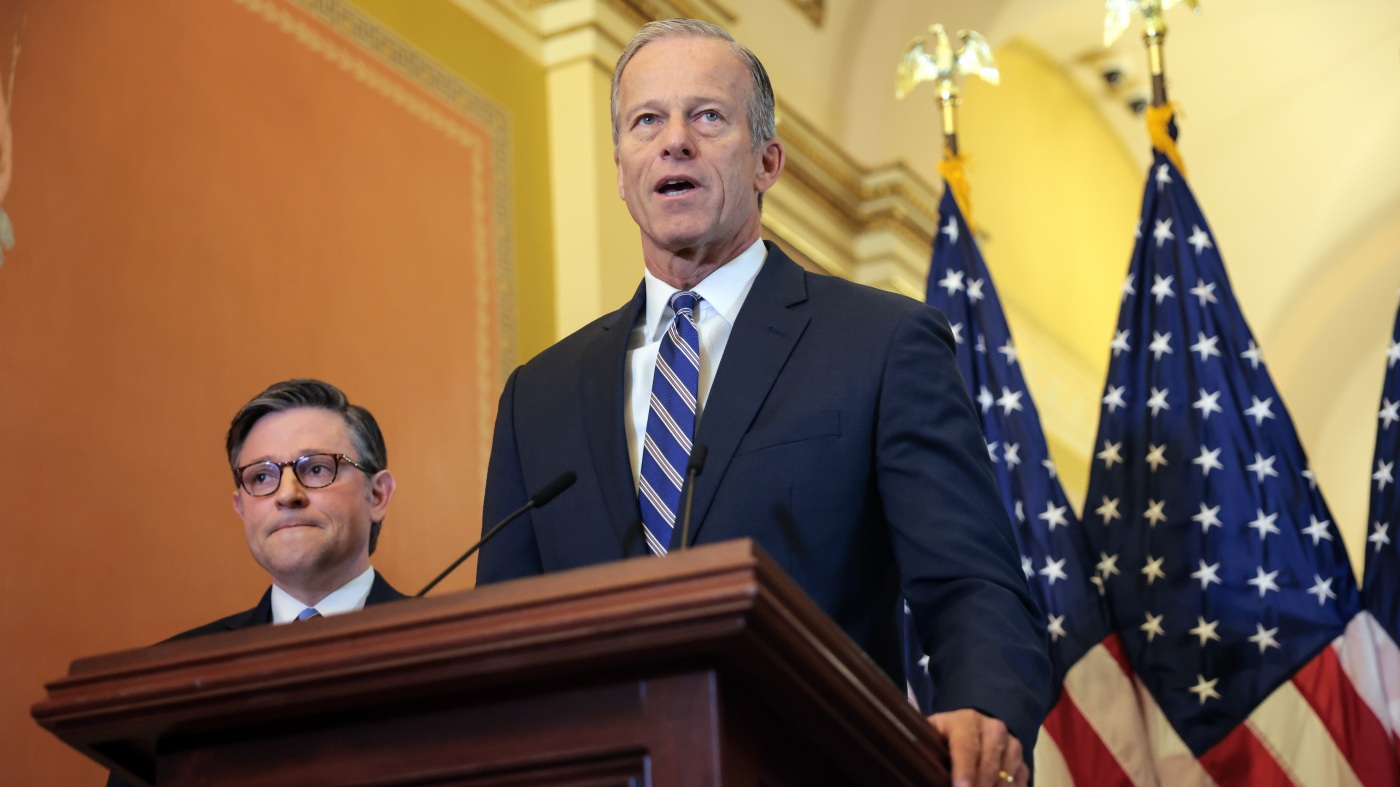WASHINGTON, D.C. – Senate Republicans have unveiled a revised version of a sweeping spending and tax cut bill, aiming to cement much of former President Trump’s domestic policies. The move sets the stage for a crucial Senate vote, anticipated just days before the GOP’s self-imposed July 4 deadline.
Immediate Impact
The updated legislation retains key components from the narrowly passed House version in May, such as extending Trump’s 2017 tax cuts and boosting funding for border security, defense, and energy production. Republican leaders are pushing for a vote on Saturday, with the potential for amendments extending into Sunday.
Key Fact: The Senate bill proposes a $5 trillion increase in the debt ceiling, compared to the House’s $4 trillion.
Key Details Emerge
Despite aligning on overall priorities, Republicans are divided on funding methods. The Senate’s proposal diverges from the House version with a higher debt limit and significant Medicaid changes. Adjustments were made following Senate Parliamentarian Elizabeth MacDonough’s guidance, necessitating the removal of certain provisions.
Tax Incentives
The bill incorporates several tax-related promises, including deductions for tip wages and overtime pay, and an increased child tax credit. The Senate version also permanently expands the standard deduction, differing from the House’s temporary approach.
Debt Ceiling and Medicaid
The Senate’s $5 trillion debt limit increase aims to prevent a potential default, a scenario economists warn could have global repercussions. Changes to Medicaid include work requirements and a cap on taxes imposed on providers, with a new fund to support rural hospitals.
By the Numbers: $4 trillion in proposed tax cuts to extend Trump’s 2017 policies.
Industry Response
The bill faces opposition from fiscal conservatives concerned about the deficit and lawmakers opposed to cuts in social safety net programs. Sen. Rand Paul of Kentucky has already pledged to vote against the bill over borrowing limit concerns.
SNAP and SALT Deduction
Proposed SNAP reforms include expanded work requirements and state cost-sharing, effective 2028. The SALT deduction remains contentious, with the Senate plan temporarily lifting the cap to $40,000 for certain couples, expiring after 2028.
“We have about a dozen members that are voting on this bill exclusively based on what happens with SALT,” said House Majority Leader Steve Scalise.
What Comes Next
As the Senate prepares for a vote, the focus will shift back to the House, where a narrow majority must agree on the final bill. The outcome remains uncertain, with ongoing negotiations and potential amendments shaping the legislation’s final form.
This development builds on the GOP’s broader legislative strategy, with implications for upcoming elections and the party’s policy agenda.
Breaking: The Senate bill allocates $46.5 billion for border security, including $5 billion for Customs and Border Protection.
The timing is particularly significant as lawmakers aim to resolve internal disputes and secure a legislative victory before the midterm elections.
